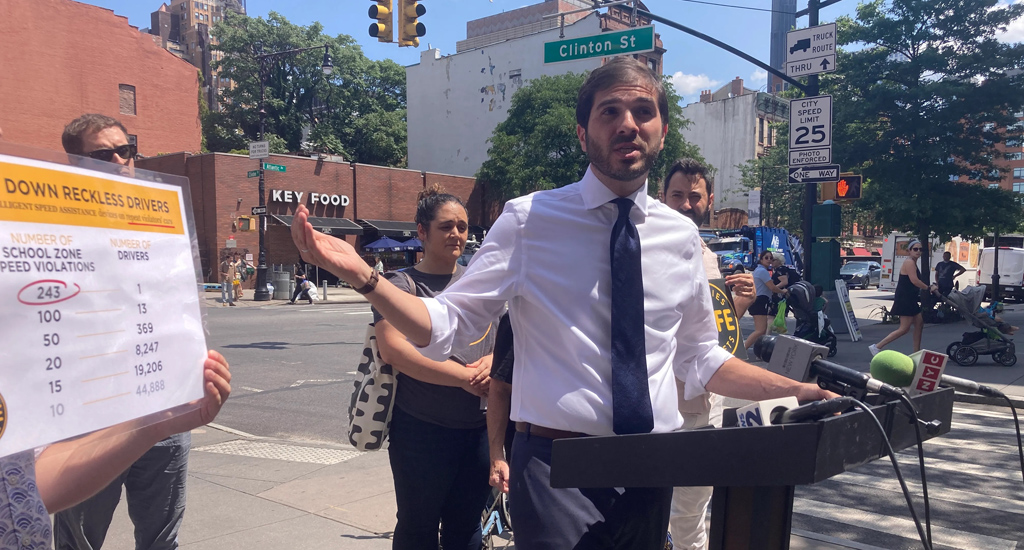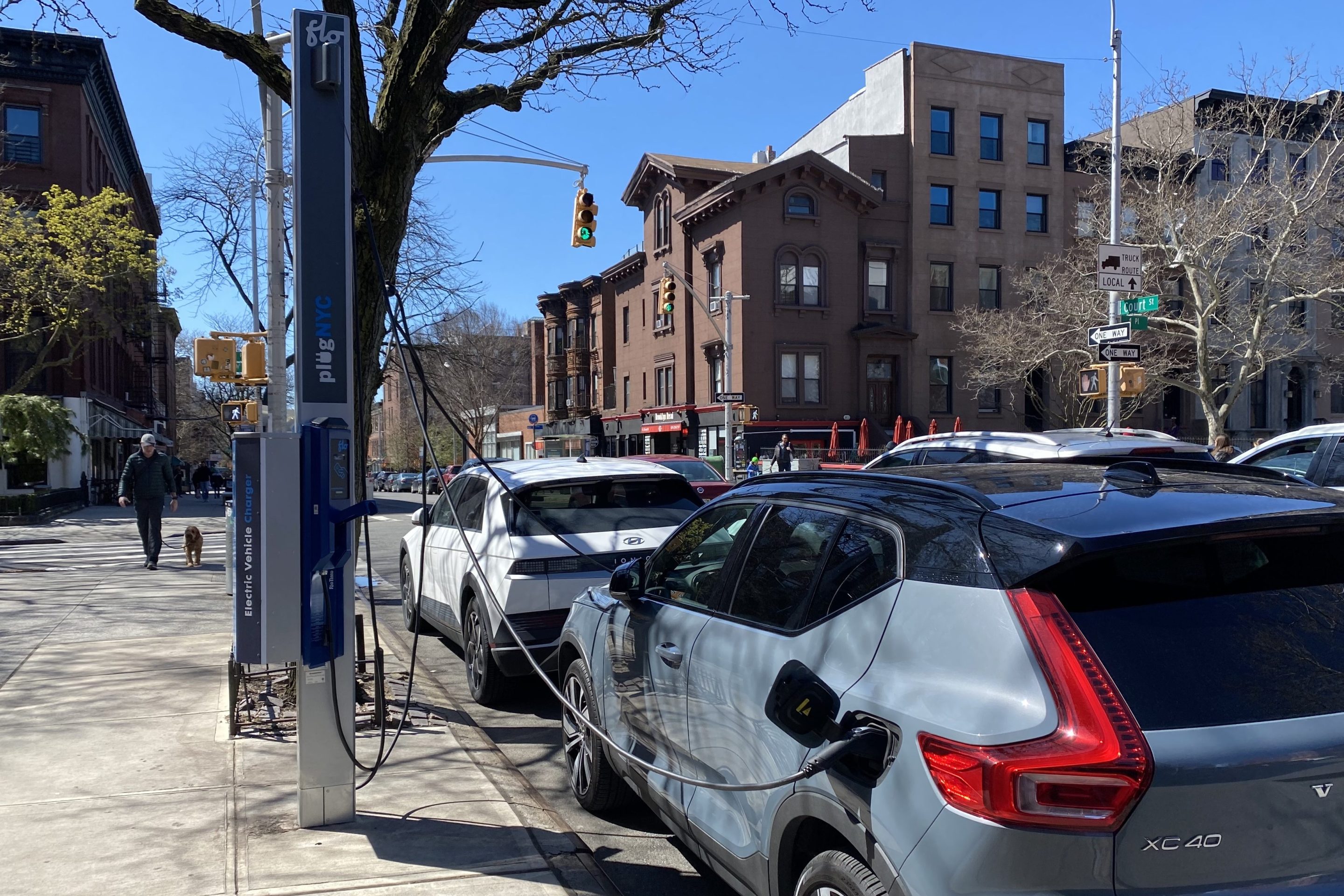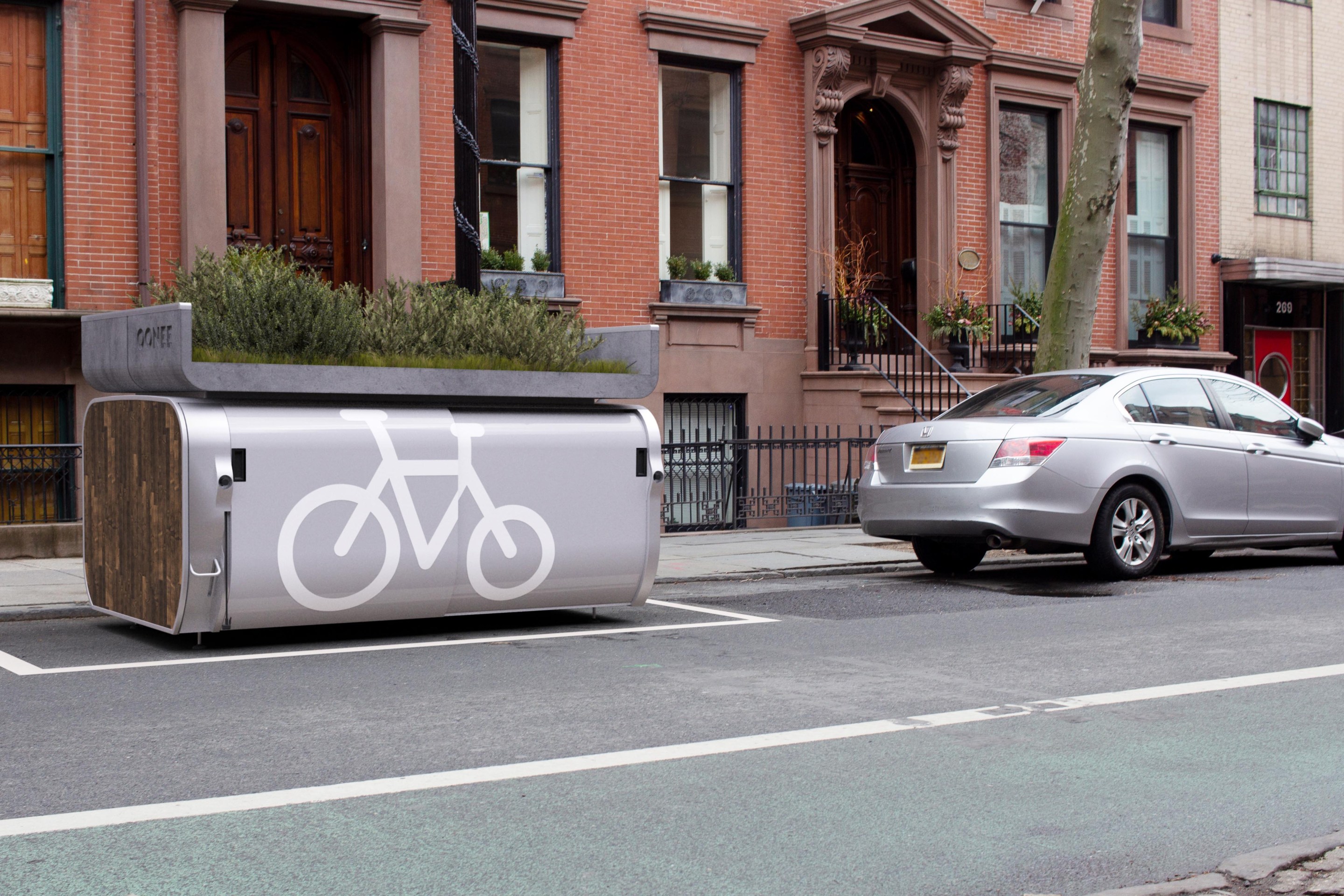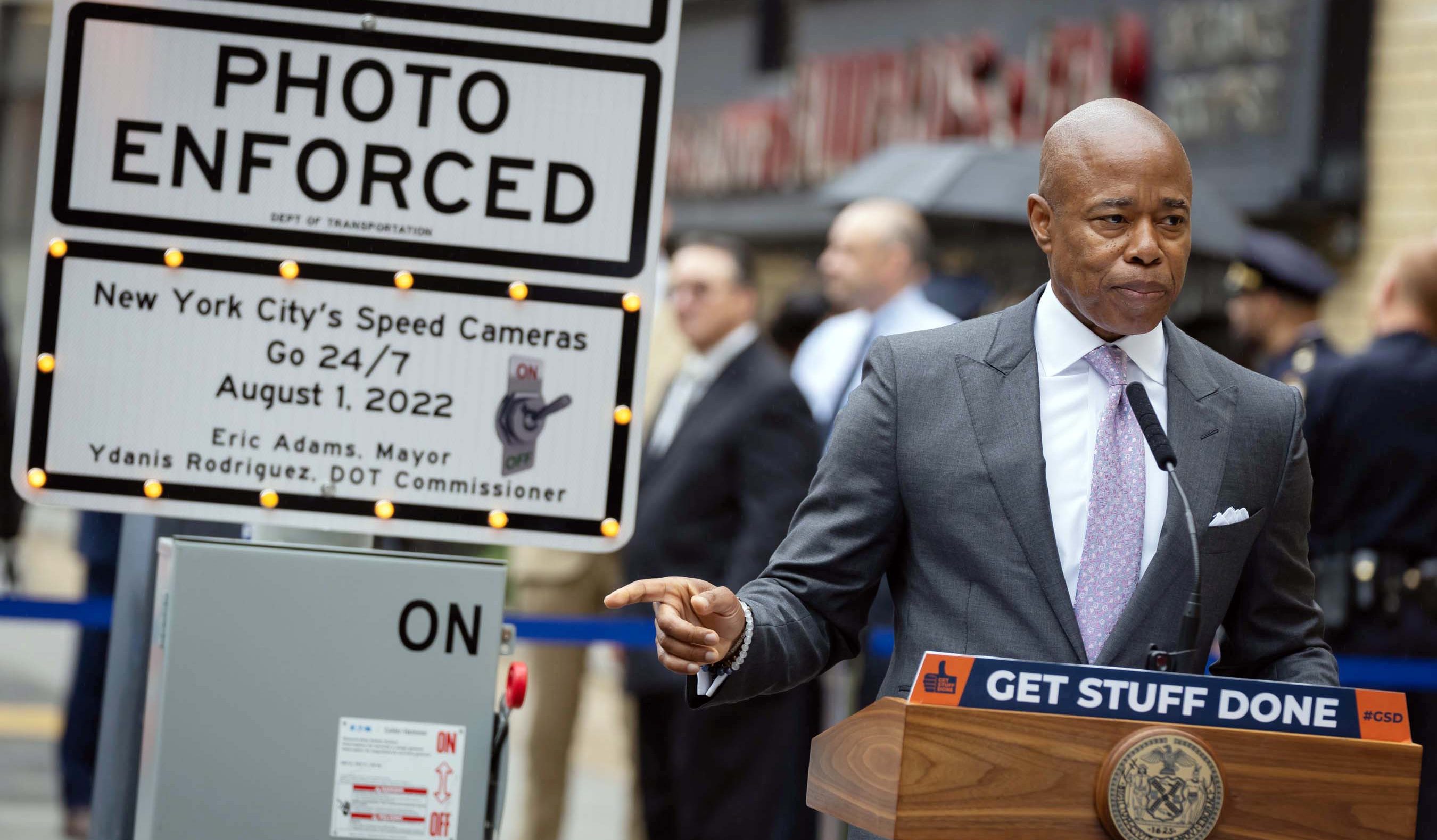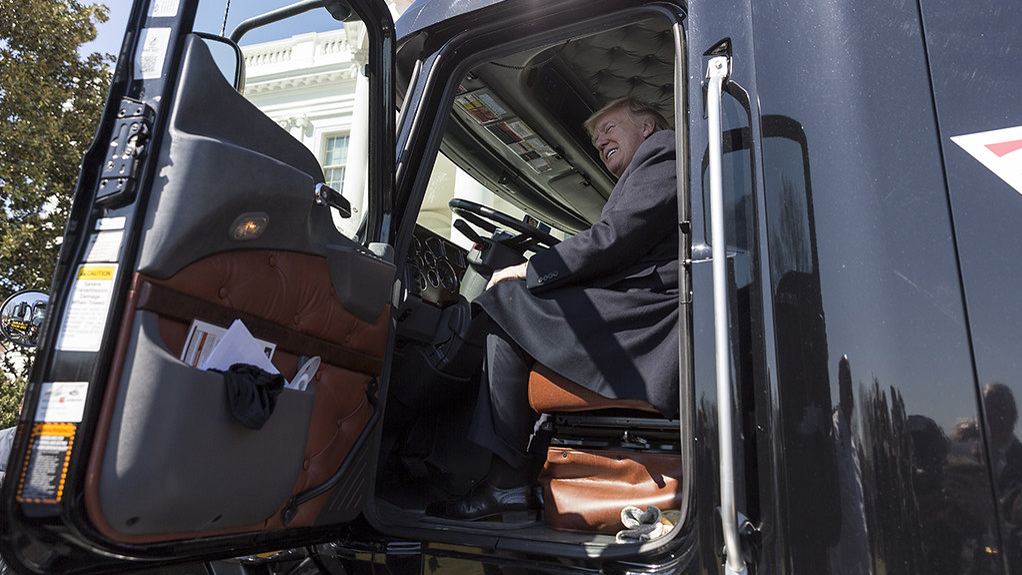Justice Delivered: E-Bikes Legalized Statewide In Budget Bill
8:15 PM EDT on April 1, 2020
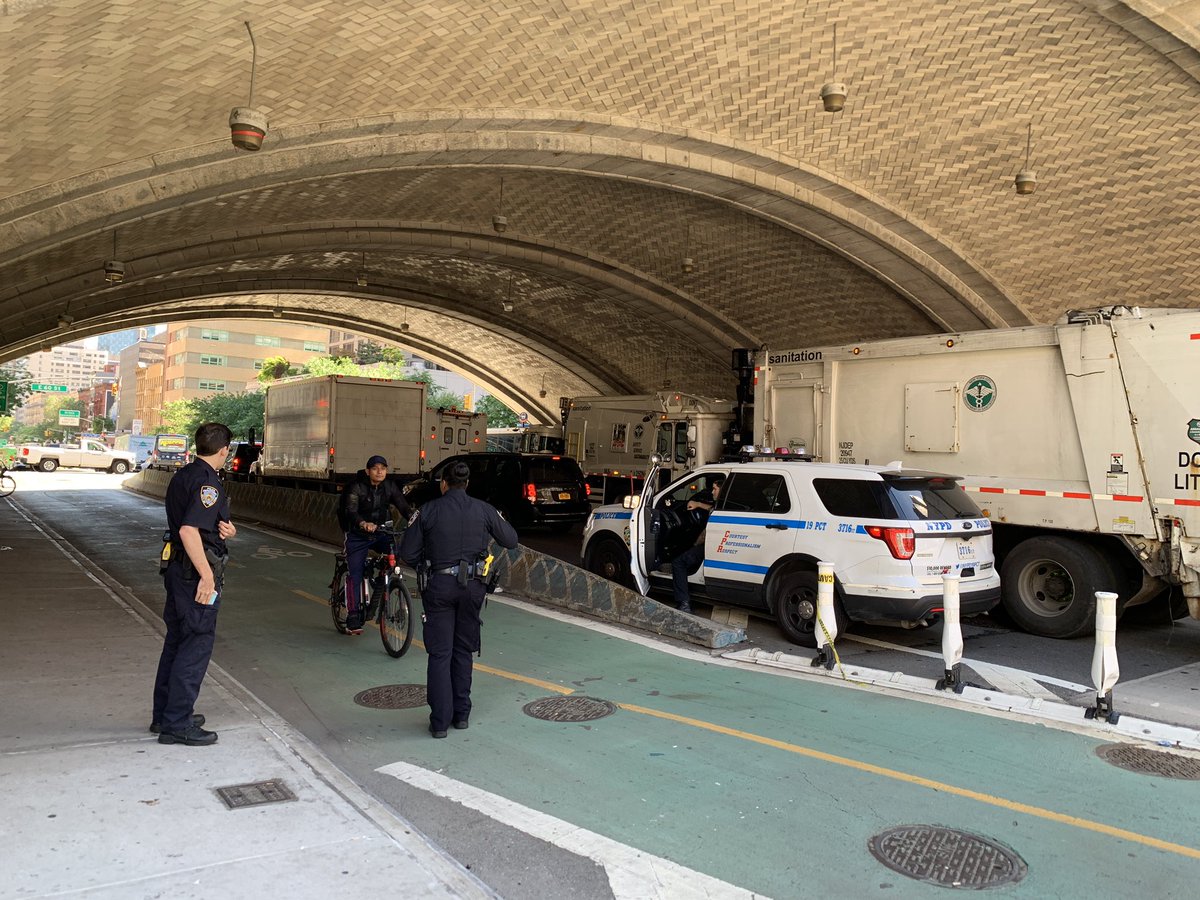
Soon, you won’t see this anymore: E-bikes are legal! Photo: Macartney Morris
Justice has finally been delivered.
Churned into all the sausage of the Fiscal Year 2021 budget that agreed to on Wednesday evening is one prime cut: the legalization of the e-bikes favored by New York City's increasingly important delivery riders. It's a victory almost a decade in the making.
THE LATEST: New York State Lawmakers Reach Tentative Budget Agreement
— Jimmy Vielkind (@JimmyVielkind) April 1, 2020
+ Spending reduced; no tax hike
+ School aid held flat
+ Billions in Medicaid reductions
+ @NYGovCuomo has power to do mid-year cuts
+ Bail law pared back
+ Pot not legalized https://t.co/VKBxv7NZq8
The budget language, worked out among Gov. Cuomo and legislators, closely mirrored the governor's January proposal, which legalized pedal-assist e-bikes, throttle e-bikes and e-scooters, but allowed municipalities to regulate their use to suit specific local conditions. Cuomo's proposal came after he had vetoed a similar legalization bill, sponsored by State Sen. Jessica Ramos and Assembly Member Nily Rozic, late last year, despite a massive, veto-proof majority.
Delivery rider and micromobility advocates had to make some concessions between the governor's proposal and the legislative wrangling that came after, but still came away with a bill that sources deemed a success. The bill creates three different classes of e-bikes:
- Class 1 (pedal-assist bikes, such as Citi Bike e-bikes, that max out at 20 miles per hour. Such bikes had been legal in New York City already)
- Class 2 (throttle-powered bikes that max out at 20 miles per hour)
- Class 3 e-bikes (throttle-powered bikes that max out at 25 miles per hour) in cities of one million people or more. These are the bikes preferred by delivery workers.
E-scooters, capped at 15 miles per hour, are legalized for use statewide as well, but scooter share programs cannot operate in Manhattan (they are expected to be piloted in Brooklyn and Queens). Helmets are required for 16- and 17-year-olds who ride e-scooters or Class 1 and 2 e-bikes, and for anyone who rides a Class 3 e-bike. Earlier in the year, advocates agreed to the Class 3 e-bike helmet requirement since New York City already requires helmets for commercial cyclists, who favor such bikes.
An e-bike rider who's found to be biking while intoxicated faces a fine up to $500 and/or 15 days in jail, despite the fact that New York has no law regarding riding a regular bike while intoxicated. And like last year's bill, e-bikes and e-scooters are banned on the Hudson River Park Greenway. It does appear, however, that local governments can overrule both provisions when city lawmakers create their own e-bike regulations.
The City Council will soon need to take up the issue The existing bill, which was sponsored by Council Member Rafael Espinal before he resigned in January, is now sponsored by Council Member Fernando Cabrera, but it's stuck as Council business has ground to a halt amidst the coronavirus pandemic.
The budget language is a victory for delivery riders and their advocates, who have been fighting for almost a decade years to legalize e-bikes and end the city's crackdown on deliver riders' main tools — a form of transportation they use so they can move around the city efficiently and fill the orders of their wealthier customers. The fight to legalize e-bikes in New York City stretches back to the third Bloomberg term, although the issue picked up publicity after Mayor de Blasio, who claimed to be a progressive, made a show out of confiscating e-bikes and ticketing the delivery workers who ride them.
The specter of class warfare was never far from this fight; City Council members representing the posh Upper East Side spent 2012 attempting to raise the fine for riding an e-bike from $500 to $1,000 and creating a $900 fine for running a red light on an e-bike (currently $190 for cars and all bikes). In 2013, Mayor Bloomberg signed a bill making e-bikes illegal in the city, which then-City Council Speaker Christine Quinn called a matter of public safety.
De Blasio not only continued the Bloomberg-era e-bike crackdown, but even stepped up enforcement against delivery riders. Data compiled by worker advocates showed that 92 percent of all tickets handed to commercial cyclists between 2007 and 2017 were given out in the overwhelmingly white neighborhoods of Midtown, the Upper East Side and the Upper West Side. And in 2017, the mayor directed the NYPD to ramp up its enforcement against e-bike riders after a well-off Upper West Side investment manager got publicity for his personal vendetta against delivery workers, who are mostly immigrants and are among the lowest-paid, hardest-working gig workers in town.
And although the mayor's own Vision Zero program was so heavily influenced by data, de Blasio's e-bike crackdown was informed by the mayor's gut and what he claimed he heard from constituents who were terrified of cyclists. Nonetheless, the city's own data showed that just nine pedestrians were injured by e-bike riders in 2018, yet the mayor said it was a matter of "common sense" that e-bikes moved too fast and were unsafe. That worldview led to the legendary moment where the mayor tried to justify his view that e-bike riders were more dangerous than drivers by saying, "You don't see cars drive on the sidewalk" in a city where people take pictures of cars parked on the sidewalk every day.
Also, drivers of cars have killed more than 200 people every year since the dawn of the automobile era. Cyclists — whether on e-bikes or under their own power — have killed less than 10 people in the last 10 years.
The bikes could have been legalized in 2019, after the state Senate (by a vote of 56-6) and the Assembly (by a vote of 137-4) passed a bill to make them legal last year. After months of silence however, Gov. Cuomo vetoed that bill on Dec. 26, only to embrace the rhetoric of delivery rider advocates when he introduced his own proposal two weeks later. All the while, delivery riders were still given $500 tickets by the NYPD, until the coronavirus pandemic.
In early mid-March, after New Yorkers were barred from eating at restaurants in order to maintain social distancing practices, de Blasio finally directed the NYPD to stop ticketing e-bike riders, the the agency has not returned any confiscated bikes.
Dave Colon is a reporter from Long Beach, a barrier island off of the coast of Long Island that you can bike to from the city. It’s a real nice ride. He’s previously been the editor of Brokelyn, a reporter at Gothamist, a freelance reporter and delivered freshly baked bread by bike. Dave is on Twitter as @davecolon. Email Dave Colon at dcolon@streetsblog.org
Read More:
Stay in touch
Sign up for our free newsletter
More from Streetsblog New York City
Thursday’s Headlines: Speed-Limiting Tech Edition
State Sen. Andrew Gounardes continues his push to force reckless drivers to install speed limiters in their cars. Plus more news.
DOT Official: All Our Free Parking Justifies Keeping Curb Space for EVs
If only someone could do something about the parking!
New York City to Install 500 Secure Bike Parking Hubs In The Next Five Years: Sources
Your bike may finally get a roof over its head.
Adams Backs Lower Speed Limits, Calls Crashes ‘Accidents’
The mayor wants New York City drivers to "slow down," but it's not clear yet how many streets will get lower speed limits.
Wednesday’s Headlines: Trump Posts About Congestion Pricing Edition
Donald Trump comments on congestion pricing — no surprise, he's against it. Plus more news.
